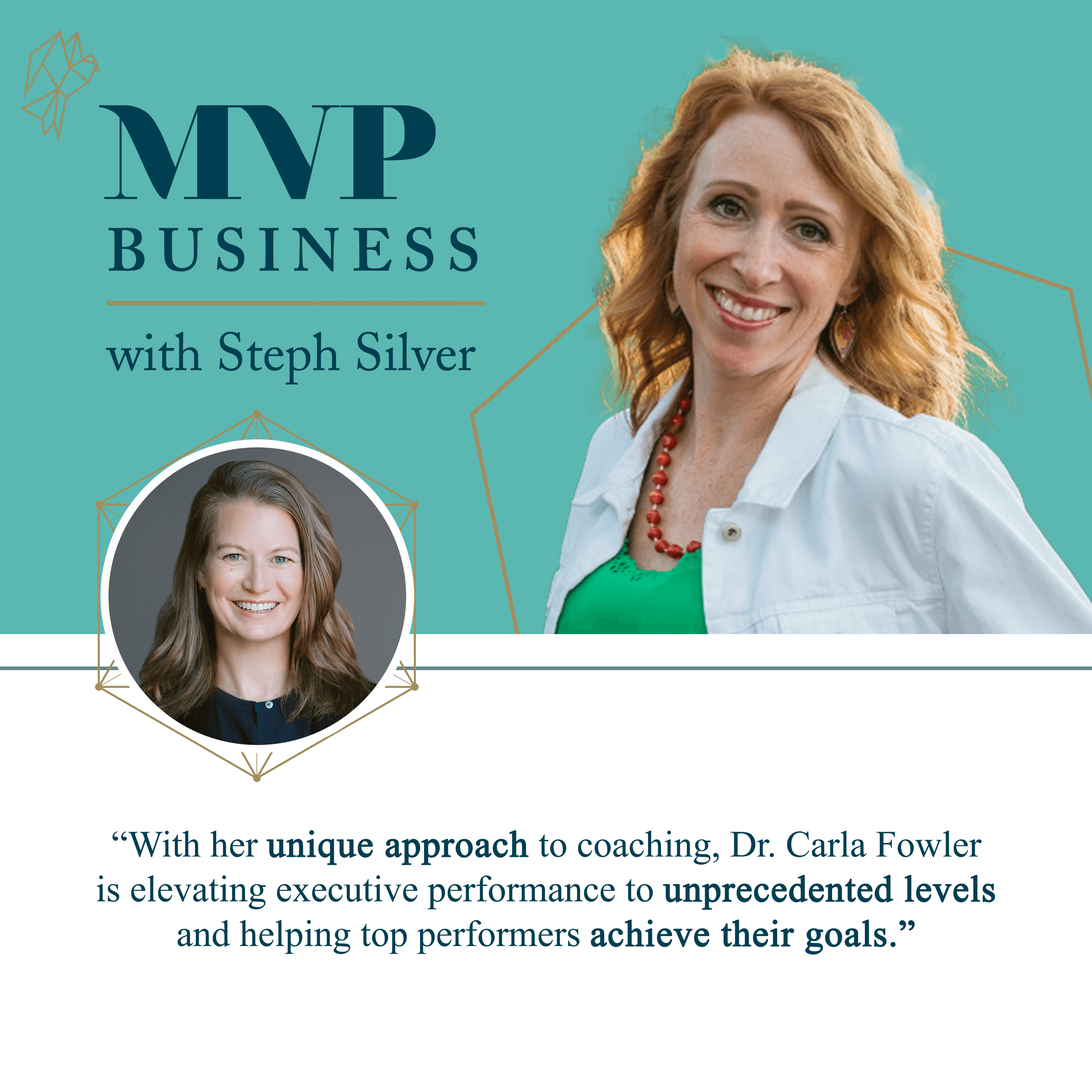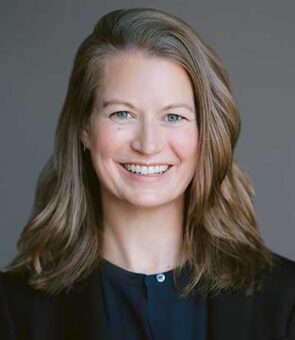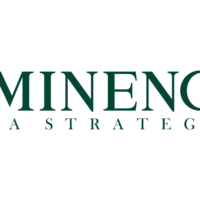Posted on June 6, 2023
Dr. Carla Fowler delves into the captivating world of data and high performance. Dr. Fowler was initially captivated by the medical field, but her enthusiasm truly flourished when she discovered the remarkable synergy between human psychology, productivity, and data-driven performance. Since then, she has wholeheartedly devoted herself to implementing a tried-and-true methodology that elevates executive performance to unprecedented levels. Tune in as Dr. Fowler takes us on her transformative journey, sharing her insights and unveiling her powerful coaching techniques for achieving peak performance and igniting elite executives.
Connect with Carla Fowler!: LinkedIn | Twitter
—
Listen to the podcast here
Igniting Elite Executives: Unleashing High Performance With Dr. Carla Fowler
Our guest is Dr. Carla Fowler. Dr. Fowler is an MD, PhD, and elite executive coach. She has been a secret weapon for scores of CEOs, entrepreneurs, and other senior leaders like yourselves. Carla’s unique approach combines the latest research from performance science with timeless best practices to help top performers level up and achieve their goals. It sounds like a fantastic way to start any day. Let’s hear from Carla. Thank you so much for joining us.
It’s great to be chatting with you. Thanks for having me.
You’re welcome. I’m excited to dig in. I know you have a lot of information to share with us, but we’re going to start by getting to know you a little bit. Tell us about who you are and where you were before all of this began.
It’s such a great question because with what I am doing, I’ve been an executive coach for the past couple of years. I didn’t grow up thinking, “I want to be an executive coach.” I have always been passionate about high performance. When I was in fifth grade, there was this presidential physical fitness test. I don’t know if you had to do this when you were in 4th and 5th grade. There were a couple of different events you had to do. One of them was the shuttle run, where you ran back and forth between two cones, and you had bean bags. You had to transport them to one, put it down, turn around, and sprint back to the other.
We lived by the elementary school. I could not get the shuttle run done. I was like, “I am going to figure this out.” My parents did not tell me to do this. I went up to the elementary school and practiced until I got it under the time that you had to do. It’s these funny memories of always being curious about when you have a goal or when you have something you want. How is it that you get that done? How do other people do that?

When I would see someone who was good at something, I was like, “What makes them good at that?” I say this because I’ve been to a lot of places since then. I didn’t always know I wanted to be a coach, but I felt drawn toward challenging things and challenging environments. It all linked back to this fascination with people and how people approach those challenges successfully.
Thank you for sharing that story. You’re an MD and PhD. Tell us about what those were and, since you’re a high performer and high achiever yourself, how you went from that direction to becoming a coach.
There were things I was interested in. I loved Math and Science. I’m not sure I had a great scope of what are the jobs that are out there. I was like, “I don’t fully understand English and History, so I’m going to head towards my strong areas.” I started in engineering but ultimately realized that I was so interested in human types of problems that it felt like biology and medicine would be a better fit.
I followed things that I knew led to jobs because I was like, “When you get out of college, you need a job,” and also things I was interested in. I wanted to work with smart people so I could observe them. There was always a part of me that was still thinking about performance and like, “I want to observe the natural habitat of high performers.” All of that combined, I was like, “Medicine is a good fit for me.”
A friend of mine told me they had these MD-PhD programs and they would pay for your school. You had to stay for about 10 years instead of the 4 years that’s typical of med school, but you then get to learn the science side of things and not just the medical side. I remember thinking, “That sounds like the best deal possible.” You have your job figured out for about ten years. You don’t have to immediately make some of those hard decisions. I always have been interested in when you study two different disciplines and what you can learn when you look at something from different perspectives. That’s how I got onto this MD-PhD academic scientist and doctor route.
For me, it was pretty wonderful. It was a great challenge. It was like being a professional student, but I had time outside to live life. I’ve always been an athlete. I love playing sports. I’m not sure I realized it until after the fact when I started the harder part of practicing medicine, but I loved having flexibility and the ability to say, “You’ve got these different projects going. You need to manage your time, but as long as you can manage it, you can play ultimate Frisbee as much as you want on the side or connect and have a social life.” That was what that period was like for me.
What was interesting is you don’t always realize how much you love that independence. I liked the structure of it. When I went into residency, I was headed down the general surgery pathway and that was when I realized that a lot of my time and flexibility went away. You’re at work for about 16 hours a day and you’ve got about 8 hours left to sleep. For me, it was to see my partner and exercise. That was the moment when I realized this path I was on was not the right fit.
You don't always realize how much you love independence. Click To TweetIt was a wonderful path to go deep on one thing and be very high performing at something. Certainly, there were things that excited me about that. Also, I had this moment of like, “I’m not sure I can imagine continuing down this path and being happy doing it.” That was a really, and there’s no other way to say it, a hard moment when you’re like, “I’ve prepared for quite a while to do this thing. I can pretty clearly see that it goes against a number of the things that I know make me happy and make me alive.” It was one of those moments where you’re like, “It’s clear.” It’s not easy, but the decision was pretty clear.
I finished my intern year of a general surgery residency. I let them know about four months ahead of time that they should fill my spot and that I’d finish what I’d committed to. I started to think about what was next and what were those common threads. I started to think about what were all the capabilities I had built, all the strengths I had, and also the passions I had. It was like, “I need to re-assort these into something new. What is that thing going to be?” That was that pivotal moment for me.
It had been a couple of years since you were on that path. It seemed very safe, secure, and clear when you started it.
It is like train tracks. They have the whole program laid out for you. You have to keep up. If you can do that, the next step is always laid out right in front of you.
It’s right there. You then had to take a complete leap off of the train tracks. It’s not like changing the direction of the train. You had to get off and build a new train, right?
Yes. I had to make my own tracks.
I have several questions right here because this is a big pivotal moment. What was your support network like? Did you have financial stability with your family or with yourself that gave you the security emotionally and financially to move forward? What was your process to determine, “This is the best choice for me? I’m ready and willing to do it.” Did you give yourself any time limits? Those are three great questions.
They’re so important. I think about this because we see people after they’re established. This is no different. I’m ten years into this new thing I’m doing. It’s great and I love it. The hardest moment is before all of that. We often don’t get to see that when we look at other people, so I’m happy to share those questions.
Number one, one of the things that seemed great about becoming a surgeon was this idea of when you walk into a party and you’re like, “I’m a surgeon.” Everyone is like, “Ooh.” When you let go of that, you do lose a sense of identity, even letting go of being a doctor. I remember that was a tough thing. I was fortunate in the fact that, for example, no one was a doctor in my family. There wasn’t a lot of parental pressure. There might have been some parental questions like, “What’s next?”
From a financial standpoint, I was fortunate because I didn’t go on the pathway thinking I was going to leave it. I did recognize early on that doing a program that didn’t accumulate debt was always going to be a resiliency factor. If there is a way to do something you want to do without doing that, it gives you more options in case you’re wrong. That was super helpful. If the scenario had been different, I might have made a different choice.
A lot of what is the right choice has to do with what your resources are. At that point in time, my fiancé was working full-time. Part of the choice to leave was also this acknowledgment of one of the best things in my life. I had this amazing relationship. I could already see what would be the limits on the time we have together choosing that path forwards.
There was a piece of me that thought I could outsmart that. When I was in my training program, I did outsmart it. I did a lot more stuff than many people did during that time by being smart about calendar management. That was a humbling piece of getting into surgical training and seeing, “I am very humbled right now.” There is no outsmarting this. This is a sheer tonnage of time and presence at the hospital that will be needed. There wasn’t outsmarting that.
Something I’ve learned going forwards is there are certainly places where we can think about what we’re doing and be smart about it, but there are also moments when we cannot believe reality. It’s always worth saying, “Is this a thing I can do better, or is this a thing that is what it is?” You can choose it and say, “I’m going to choose all the benefits of it as well as the trade-offs, but I’m not likely to change the trade-offs.” That’s something I learned at that moment and think about a lot.
There are certainly places where we can think about what we're doing and be smart about it, but there are also moments when we cannot bully reality. Click To TweetWhen you are going through that process of making choices, there’s the first choice of staying on the medical path. You could have gone in a different, less intensive medical path direction, like private practice or whatever it was. It’s staying in that, then there is a completely new career. You are in a guidance leadership coaching role. You are very scientific. Did you make a spreadsheet? Did you do lists? What was your process like? What were you paying attention to? Was it a gut decision? How did coach come into your mind?
I didn’t make a spreadsheet. In some ways, I’m always recognizing patterns. I’ve thought as a scientist for a long time, so I’m always looking around. One of the patterns I did notice was that when you’re a resident, you are still training. You are an MD and you’re working. I looked into the future, and I was looking at the attendings. Those are the people who had made it and who were 10 to 20 years beyond where I was. That’s something I often recommend to people. Look at who has made it and ask yourself, “Is this a temporary thing that I don’t like that I need to work through, or is this a reality of what it looks like ultimately and what it will be like?”
What I would say is I made a choice to leave without fully knowing how I was going to pull things together next. That was because it was so clear to me that this was not the right path that I needed to then create space. Even if I was going to have to sit in that uncomfortable space of I don’t know what’s next, at least I would have the capacity to focus on that question. I did not have that capacity while I was still working.
I had some room financially to make that leap and say, “I don’t need to be successful. I don’t need to be getting paid next month.” There were some good temporary options. You can do some moonlighting. I could have said, “I’m going to switch medical specialties first and then decide.” There was a piece of me that had said no. I had seen what part of medicine I wanted to be a part of, and I was seeing the pluses and minuses, not just of the specialty I had chosen. You work with all the different specialties in the hospital.
For me, you have a moment to make a big pivot. Making the pivot is going to be challenging. I was not so confident in medicine as a whole that I felt like doing it incrementally was the right move for me. It was much more I ripped that Band-Aid off. It is going to be hard. You are going to grieve leaving. You’re going to re-establish yourself, but you don’t want to re-establish yourself three times.
Here’s the thing. Not all decisions are like that, nor do I recommend it to people. It’s not always that ripping the Band-Aid off is the best strategy. Something I talk with people about when I’m coaching is, “Can you try to have some of this thing? Can you run an experiment that is non-committal but would give you some data about what it might be like to do this thing?”
Sometimes, when people are wanting to make a change, you don’t have to go all in on it. There are often a lot of ways to try before you buy, for example. Medicine is very binary. You’re in it or you’re not. That’s a little bit different. For me, it was ripping the Band-Aid off, but a lot of life is not like that. That is what I was thinking at that moment.
In your next steps, did you get certified? Did you start talking about it and test like, “I know these executives. Let me try either do it for free or charge them a little bit.” What was your next step?
You had asked this question of, “How did coach come into the equation?” I did take some time. I took about three months to catch up on sleep because I felt like I had not had a creative thought for at least a year. I took some time to take care of myself. I exercised. I slept. We moved back to Seattle from Palo Alto. I gave myself a break and then was like, “Now you can think about it.”
Coach came into the equation because when I came back to the thing that had always been pushing me to the places where I ended up, I think like a scientist. I’m so curious about people, performance, and what behaviors and mindsets help people do their best work. I also noted that I really enjoyed the parts of medicine that were interviewing people and working with them.
In the psychiatry rotation I did, they told me, “You would have a home here.” I also was like, “Yeah, but I’m not sure being a psychiatrist is exactly where I want to focus.” I loved the surgeons because it was very high-performing and high-stakes decisions, but I never quite found my home that fully fit the amount of care and time I wanted to take with people, which isn’t so much fit in that surgical fast-paced practice.
What ended up happening was I looked at all these capabilities. I knew that I was ready to build something that was my own because I had gotten so much training. When you’re a scientist, part of that is working on an unstructured problem. I was like, “It’s scary to me, but I need to not have someone else build the tracks. I need to build my own tracks.” As a person who had always excelled in systems, that was uncomfortable.
I thought to myself, “I like the psychology of things, but what I want to talk to people about and help them use is all the science around performance.” It is so they can use it and not write about it and be an academic. I want to help people use it in their lives and their work and feel empowered by that. I want them to get great results based on what their goals are. I loved the idea of building a method, so I didn’t go to a coaching program.
I felt that in medicine, I had the wonderful opportunity of talking with people about high-stakes decisions. It was in the health realm, but it was something I felt pretty comfortable with. We had some training in motivational interviewing. I loved this idea of saying, “Rather than be a lab scientist, I want to be an applied scientist and read and start to get a handle on what is the science and all the ideas about performance.” How do I distill that into a method so people don’t have to become an expert at that? We can through dialoguing and questions help apply that in ways that they can use it easily and what’s relevant to them.”
I spent about 3 or 4 months reading, thinking, and designing the backbone of what I thought would be the model I would use. I convinced some high-performing people who were in my network to be Guinea pigs. I beta-tested because I wanted to say, “Is this useful for these people who already were knocking it out of the park?” I got feedback on it. It was probably about nine months after I’d left residency that I opened my practice. That was how that transition happened.
That’s fantastic. The next piece of that is several people that I’ve talked to over the years since I started having my own business coach. We talked about executive coaching in different ways, performance coaching, and life coaching for business, both, and all in between. A lot of people have said, “If you’re an executive, you don’t need coaching because you’ve already got there. You’ve already done that.” I think it is 100% wrong, but I wanted to hear your thoughts and how you talk through that and explain it.
You said you went to your high-performing friends and network and said, “This is for you. It’s not that I see you have a problem. I see that you’re doing great, and I might be able to make you even better or help you to achieve even more.” Talk us through why executives are a good partner and target client for you and why it’s good for people of all different ages and stages to consider this kind of thought process.
One of the things that I’ve noticed, and it’s an important piece of why coaching can be a wonderful tool at any stage that you’re at, is that earlier in our careers, there are a lot of systems and tracks that are set up to help us learn and develop. When we’re new in our careers, we often have no problem with learning. In fact, our peers are learning and we’re all there to drink from the fire hose. It’s invigorating. That is what we think of at that stage.

Elite Executives: Earlier in our careers, there were a lot of systems and tracks we could say that are set up to help us learn and develop. When we’re new in our careers, we often have no problem with learning.
One of the things that happens mid-career that I’ve noticed is there can be a sense of, even though people are doing great and may have risen in their leadership, stagnation or even things are not quite right. Part of why that happens is a couple of things. First of all, often, when we’re early in our career, we look at that mid-stage career and say, “That’s the destination. I will have made it. I’ll feel successful. I’ll feel all these things. I’ll know the answers. I’ll be confident and I’ll feel comfortable. I can’t wait to get there.”
The truth is, as human beings, we’re at our best points when we always have some challenge or see ourselves continually growing. When we are not growing and when we haven’t grown for a while, that stagnation can be a source of dissatisfaction. It’s sneaky. We often don’t know what’s wrong because we’re like, “I am successful. I’m in the position.” Sometimes, it can be, “I’m a little bored.” Sometimes, it’s, “I feel a little insecure because I see new technology is coming. The environment and the economy are changing. If we aren’t actively in touch with those, “How do I learn and grow muscles?” we can feel a little unprepared for change.
One of the things we need from executives is the ability to grow and change. Everyone is looking at them. They are leading the group. As things are changing in the marketplace and the economy, they will need to adapt and deal with that as well. That’s one of the reasons that coaching can be so helpful. It is in identifying what those growth areas are. There’s that.
Also, there aren’t as many workplace systems set up for executives to be growing. There are lots for people early in their careers. Often, that growth has to be self-driven. There are people who naturally are always seeking that. It can often be helpful to have a thought partner to both identify what would be most valuable to learn and help you design how you would want to work on that, what opportunities you could create, and what would be valuable. That’s one of the reasons I see having a coach, even when you are running on your A-game, can be helpful.
I agree. Humans, at every stage, are most emotionally healthy, and you probably know this, when they’re at their zone of proximal development. It is where they’re on the edge of the capacity for what they already know and learning something new. It’s not too much to where it’s scary and overwhelming, but there’s something that’s pulling them forward.
No matter what stage of your career, education, or life, when you get to that point where you feel like you’re solid, some people are good at celebrating and noticing. Other people whizz by that because it was a thing they knew they were going to do. You naturally start looking for other things to fill that gap, and sometimes, that gets you into trouble. It can pull you into a midlife crisis or other things if you’re looking for ways to challenge your life status. You’re in a big corporate organization. You have a team. You have resources for growth, quotas, product development, or whatever you’re working on, but you have this team that you’re working on, and your manager or boss is your team coach.
I’m not an athlete because I’m uncoordinated and I still exercise and things but still love the concept of the processes and the continual growth. The athletes that are at the top of their field have a coach for every aspect of their lives. If you are looking to be at the top of your field or at the top of wherever you want to be in life, having a coach in that aspect of your life is going to help you see the entire world in a completely different way.
One of the things that I love about most of the coaches I talk with is that they’re looking at what they see, hear, know, and the systems that they have studied in order to show you a path that you don’t see. With the athlete, you can look at the tapes and say, “Did you see what you did there with your left foot?” They may not know.
It’s this wonderful process. To me, coming from a scientific lens, it makes so much sense. Not everyone approaches it this way. There’s plenty of art also. I love observing, listening, gathering data, and formulating a hypothesis. What I say is not the truth, but I love talking with clients because we can say, “Here are some things I observe. Do you observe that?” Sometimes, they’re aware, and sometimes, they’re not aware of that thing. It’s okay either way.
I love it because we can plan and experiment. We can have a hypothesis and say, “Do we think this would change? What are the results you’re getting? What is your experience of what you’re doing and how that’s feeling?” We get to come up with an experiment for them to run. This goes back a little bit to the idea that we don’t have to live life all in or not all in. We can think about it as, “How do I learn something about myself and what I could do differently?”
One of the big challenges that clients are often facing is the idea of how to deal with uncertainty. This is true for leaders. It almost feels like even more so right now, but the truth is, in every generation, there were things that were highly uncertain. I didn’t experience the ones of generations before me, but they exist. Helping people work through and understand their relationship with uncertainty is something I love talking about. That’s the concept of, “Can we run an experiment? Can we design something where the downside is mitigated where there’s not too much downside?” The upside is, potentially, you get a new insight about yourself, your team, or how to get some different results.
We don't have to live life all in or not all in. We can think about it as how do I learn something about myself about what I could do differently? It’s facing this idea of how to deal with uncertainty. Click To TweetWe then talk about how you might measure it, how you might think about what are the inputs you’re going to put in or the actions or the changes you’re going to make. We talked about how we are going to think about what would be the output we’d measure and when we might do that. This is a framework that I love to use. My background as a scientist comes into coaching. Combining those two fields produces something interesting. I was thinking about that based on what you were saying.
What are some of the top mistakes that people make with their own performance or that you’re able to see and guide them through?
There are a couple of things. One is we often don’t spend enough time with the question, “What do we want to happen?” When I say that, I know that probably the first reaction some people might have is, “I’m spending all this time thinking about what I want.” When I say that, what I mean is we often have a fantasy idea. We all have dreams about, “Wouldn’t it be nice if?” or these things. Spending time on that question is really important because we often, particularly proactive people, jump to the to-do list or the, “What actions am I going to take?”
I often talk with people about this idea of brutal focus. For me, it’s been one of the most important principles of performance that I rose to the top as I was thinking about what I could help people with. Brutal focus is this idea of asking yourself and getting clarity on what it is you want to happen and what that would look like in the real world. It is thinking about some realisticness about time, what your life looks like, or what your workplace or your company looks like. What would that outcome look like?
The second piece is asking yourself and getting away from that like, “Here’s all the stuff we are going to do or try to get that to happen.” You are spending some time saying, “What is most important or potent in terms of getting us there?” It’s easy to look around at what everyone else is doing and create long lists like, “We need the social media. We need this. We need that,” versus saying mechanistically, “What must happen? If we have limited time and resources, where would we invest those to get the results that we want?”
I like this way of thinking because we often live in a culture where more is better or we should outwork the problem. Burnout is a big issue for people. I like brutal focus. I call it brutal because it often is a much more selective way of thinking about things, but it often is what we need to not be burnt out and use our resources in the best way. To be brutally focused could look a lot different from what most people are doing, and that can be a little uncomfortable.

Elite Executives: We often live in a culture where more is better, or we’re taught that we should outwork the problem. And that’s why burnout is really a big issue for people these days.
Also, inherently, you’re making some bets. You’re saying, “I’m not going to cover all the bases by doing everything because that will dilute my energy and my resources. We might not be successful not because we didn’t pick some of the right things but because we didn’t do enough of the right things as we were busy doing these other things we thought might be helpful that we didn’t get over a threshold.” This is one of the principles I talk about. The mistake is we often jump to the doing without first saying, “I’m going to take some time and think about what I want and what is most important for getting there.”
That’s what I like about your process of how you got started as a coach. A lot of people will make these long lists, and then they’ll jump to the middle and try to knock out what’s easiest and as many things as possible. Especially as a mother where I have two kids sick at home, it’s like, “It might be a cold day. It completely changed. We got to go to the doctor,” and all these things. You never know what your day is going to look like. Even if you’re not a mother and you’re working, it’s like, “This fire popped up. Everything on my list is out.”
What two things can be accomplished now? What’s the biggest and most difficult? What’s the smallest and easiest so that you can knock out two things that are going to get you to that next step you can do? If you knock out so much more on your list, you’re going to feel like a rockstar. If you know that your true goal for that day is the biggest and most approachable, then you’re going to feel like, at least, you moved in the direction that you were heading toward that you thought you wanted to go. You put it in that mindset of the hypothesis that you’re talking about to say, “At the end of the day or at the end of the week, did it get me closer to the feeling that I thought I wanted to have? Is that feeling still what I want to have?”
What you said is this wonderful example. I often think performance science has three big buckets in it, and I see them as feeding off of each other. They are often schools of thought or people who index on one area or another area. What I love is saying they’re all important and they all feed into each other. One of the things you brought up that’s so important is how we are feeling about our experience. What is our mindset, motivation, or confidence? Where do those things come from? I think of mindset as one of those buckets.
Focus is another one of the buckets. It’s the strategy bucket. It’s what are the few things that you think are the right things that are going to give you the most impact, and can you select those? That’s the second one of the buckets. What’s interesting is the relationship between those two things. It’s the idea that you can be selective, be intentional, and say, “I’m doing the biggest most important thing. I’m going to find one thing that’s an easy win that I know I can get done today,” and then you complete those things. Maybe you do some other stuff or maybe you don’t.
However, when we meet our word to ourselves or state something and then it happens, there is an internal mental loop that happens that makes us feel more in control, which, as human beings, is a happy signal to our brain. It’s that sense of control over our environment. We feel like we could expect that that would happen in the future.

Elite Executives: When we meet our word to ourselves, like when we state something and then it happens, there is an internal mental loop that makes us feel more in control.
Ironically, you’d think some people are like, “I get up and I’m going to do as much as I can today.” They might do even more stuff and yet will not feel as good about it as the person who says, “I’m doing this and I’m doing that. That is what is realistic. With my two sick kids at home today, that’s what I’m going to do.” It is about being consistent. If you can feel good and feel like you can meet your word to yourself and do that consistently over time, ultimately, the compounding of that, I find, is much more powerful than the sprint burnout where you feel a little demotivated. Resurrect yourself and go again. Consistency and a sense of well-being are much more effective than the other thing. I love that example you brought up.
Thank you. It’s for long-term success. There are days when you have to put your head down and knock out ten million things when you have that ability and that time. Even in those days, you say, “I know I have this huge long list, but if I accomplish X, it will be a successful day.” When you go to bed, you can sleep instead of thinking about that list that wasn’t quite knocked off. You can say, “All the essential things were completed.” You can sleep well, and the next day is going to be even more effective. It’s a compounding effect. That safety and control is the number one feeling we need to have peace of mind, peace of heart, and peace of our entire being. Unfortunately, we all need to have that level of control whether we are aware of it or not.
The perception of control might be the best way to say it.
That’s exactly right. It’s the same thing with certainty. The idea that we think that there is such a thing is laughable. There is no such thing. To the extent that you do something, you expect that the same can be repeated. What advice do you have for someone who is either in the executive role and feeling like they’re not quite where they want to be and are feeling unsettled or to someone who is sure that they’re in the wrong spot and they need to make a change?
Sometimes, you’re in a spot where you need a drastic change. Sometimes, you’re not. I don’t like to have any knee-jerk reactions. I recommend that one of the best things you can do is to carve out some time for yourself. It’s not like a one-time thing. It doesn’t have to be a ton of time. It might be a great time to say, “For the next three months, I am going to carve out some weekly time for myself, which may be on a Sunday or something, to sit, reflect, and journal a little bit on the question, “What do I want?”
Sometimes you're in a spot where you need a drastic change. Sometimes you're not. One of the best things you can do is to carve out some time for yourself. Click To TweetTry to think about, “What things do I have right now that feel very in line with what I want?” You can ask, “What would I want if there were no social pressures? What would I want if I was not worried about what anyone thought? What would I want if I was a new person in a new town and I felt free to do whatever?” It’s okay to write down all sorts of things. It could be in your personal life. It could be at work. I always like the other one, “If you could wave your magic wand, what would you make happen? What would be different?”
Spend some time thinking about that question. Often, it’s so easy to jump to an answer or a solution. We often get out of practice at asking ourselves that question. You can even ask trusted close friends or partners to say, “What do you perceive that is missing for me?” That is because sometimes, people can pick up on stuff that we might not be as in touch with.
I would recommend spending some time with that question. I don’t believe it’s a selfish question at all because when we are willing to ask ourselves that question, we leave more room for other people to ask the question. As an example, when I asked myself the question, “Do you want to be a surgeon?” and the answer was, “Unfortunately, no,” my spot opened up for someone else who did really want to be a surgeon. I think of this not as a selfish question but as such an important question. When we can put ourselves in the right spots, then the pie grows for everyone.
What’s also not a selfish thing is to take time. That was the first assignment that I had when I got my coach. He said, “Take time for yourself,” and I laughed so hard. I was like, “Do you really think that I can do that?” It took me a month to go in the garden and not have guilt about not being with my children for that 45 minutes of time. If you are one of those people who feels like, “There’s no time for me to sit down,” first of all, you don’t have to go on a big expensive retreat. You don’t have to take a whole weekend.
You don’t need a fancy journal. A Post-it will work.
Exactly. It’s like meditation. You don’t have to be a monk and sit for days in silence. You start with a little bit. It could be a little bit of journaling right before bed. It could be 45 minutes or 1 hour to let yourself get into a moment of feeling yourself and thinking, “What do I really want?” It’s like what you did. You were like, “What did I enjoy as a child? What would I do if money and social constraints weren’t something to guide me and think about?” Thank you for that because I agree with it. That’s always the question. Once your wheels stop turning with ease, the first thing is to sit for a minute and let it be, which is uncomfortable for a lot of executives.
I remember my boss. I worked for an agency for fourteen years. I was always trying to get him to take care of himself. I felt like that was part of my place in life. We went to a conference. Arianna Huffington said that she had implemented nap rooms in their New York City office and required personal time, yoga, and all this kind of stuff. I was like, “I told you.” He’s like, “That is ridiculous. That’s her. That’s not a thing that executives do.” Every time I heard someone say, “What I do for my greatest ideas is sit in the dark room and stare at a wall,” I’m like, “Jeff Bezos does it, whatever it is.” Thank you for bringing that up. I’m sorry to go on this big diatribe, but it’s true. People can sit for a minute, and it doesn’t have to be formalized in any way.
I agree with that so much.
Thank you so much for joining us. We can get more into the nitty-gritty of the process, but you’ve made us think in a lot of different ways. I appreciate it.
It was wonderful to be able to chat with you. Thanks for your questions. We could talk for another hour.
I encourage you to all checkout Carla Fowler. Is THAXA.com the best place to find you?
Yes.
Thank you so much for all of your information and for everything you give back to the world.
You’re welcome. Thank you for having me.
I also want to thank Eminence M&A Strategies for their support of this show and lots of small and medium businesses through their transition times. Thank you for tuning in. If you like it, tell your friends. Follow us on Instagram, LinkedIn, and Facebook. The mission of the show is to dig deep into the lives of true leaders so that others can follow, knowing that the path isn’t always easy, but the journey is worth it. Enjoy the day and live with passion.
Important Links
- Dr. Carla Fowler
- Instagram – VINE Collective
- LinkedIn – VINE Collective
- Facebook – VINE Collective
- https://www.THAXA.com/p/MVP-Business-Podcast
- https://www.LinkedIn.com/in/Carla-Fowler/
- https://Twitter.com/DrCarlaFowler




